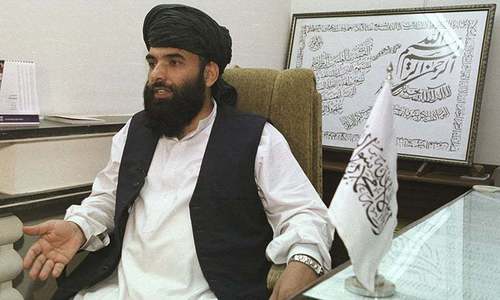
ANOTHER sign that the endgame to the seemingly endless conflict in Afghanistan may be near came on Tuesday as a host of Afghan factions — including the Afghan Taliban — met in Moscow to talk peace and reconciliation.
The meeting comes on the heels of marathon talks between the Taliban and the US in Doha that have been described as a breakthrough and the possible beginning of a negotiated peace that can bring stability to war-scarred Afghanistan. In fact, on Wednesday news outlets quoted a Taliban representative as saying that the American withdrawal had already started.
The fact is that the Americans, the Russians as well as the Chinese are all wooing the Taliban. After years of being on the fringes since the invasion of the Americans and their allies ousted them from power, the Taliban are now gaining acceptance as legitimate stakeholders in the Afghan political process.
There are also signs that they are showing some flexibility. For example, in Moscow, members of the militia said they wanted an “inclusive Islamic system” in Afghanistan with a new constitution, while they also listened to Afghan women’s rights activists.
Read more: 'We never want to go back': Afghan women fear cost of peace under Taliban
This indicates a change as it was under the Taliban’s watch that women had been denied nearly all rights and freedoms.
Also in attendance in Moscow were a number of Afghan President Ashraf Ghani’s political opponents, as well as former president Hamid Karzai, against whose government the militia had fought a bloody insurgency.
But perhaps adhering to the maxim that in international relations and statecraft there are no permanent friends or enemies, all parties that attended the Moscow conclave are working to protect their permanent interests in Afghanistan.
They perhaps realise the fact that they will have to tolerate each other to do so, and eschew the way of the gun. It is also no small irony that the Afghan factions met in Moscow, considering the fact that the erstwhile Soviet Union was instrumental in destabilising Afghanistan.
Read more: Taliban demand new constitution for Afghanistan at rare talks in Russia
While the Doha and Moscow talks are good news, to ensure that negotiations result in a lasting peace, the Taliban should start talking to the government in Kabul. It is naive to imagine that decades of hostility will melt away after a few discussions in foreign lands.
However, the US, the Kabul government, the Taliban and all other Afghan factions need to agree on confidence-building measures that can help pave the way for peace and a sustainable political process.
A multiethnic democratic Afghanistan that protects the rights of all sects and ethnic groups is the objective here, with protection for women’s rights and a policy of not providing sanctuary to transnational militant movements.
After decades of war it will take time to heal the wounds of the Afghan people, but reconciliation is the only way forward for this battered land.
Published in Dawn, February 7th, 2019













































